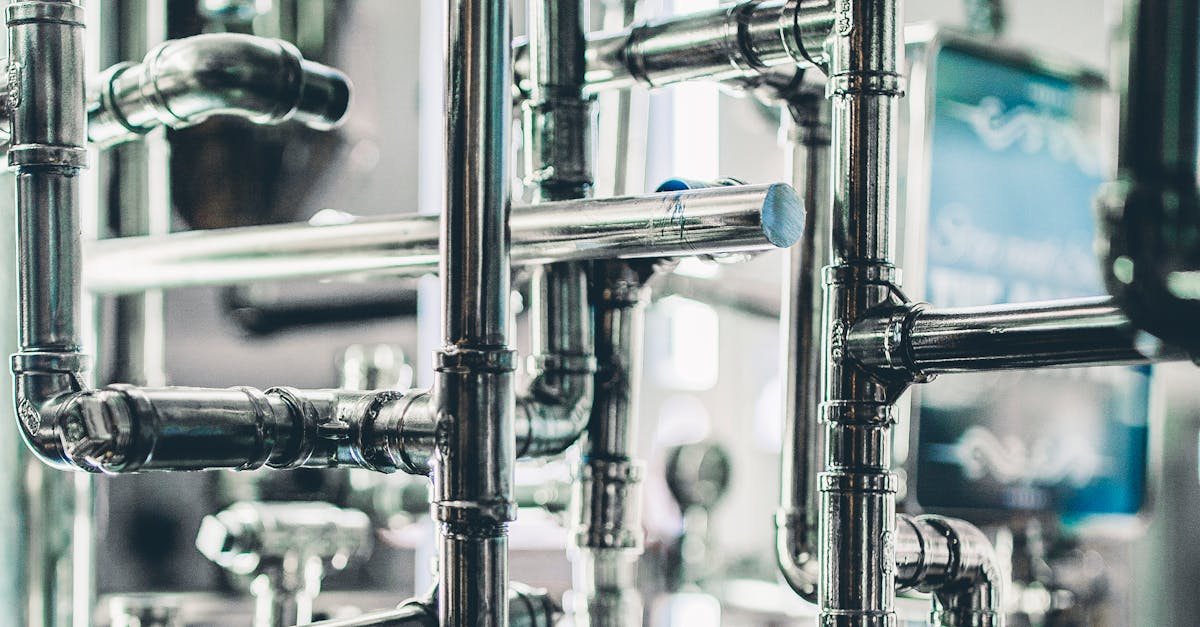
Table Of Contents
Risks of Failing Backflow Prevention
Backflow prevention is essential to safeguard public health and prevent contamination of water sources. One significant risk of failing backflow prevention measures is the potential for harmful substances to flow back into the clean water supply. This can result from a drop in pressure within the plumbing system, causing the reversal of water flow and the introduction of pollutants, chemicals, or bacteria into the potable water system. Such contamination poses serious health risks to consumers and can lead to outbreaks of waterborne diseases.
Moreover, the failure of backflow prevention systems can compromise the integrity of plumbing infrastructure and result in costly damages. Without proper safeguards in place, backflow incidents can cause pipes to deteriorate, leading to leaks, bursts, and other structural issues within the plumbing system. In addition to health concerns, the financial implications of repairing or replacing damaged plumbing components due to backflow incidents can be substantial. Therefore, ensuring the effectiveness of backflow prevention mechanisms is crucial for maintaining both the safety of water sources and the longevity of plumbing systems.
Health and Safety Concerns
Health and safety concerns regarding backflow prevention are paramount in both residential and commercial settings. The risk of contaminated water entering the main water supply due to backflow poses significant health hazards to the community. Without backflow prevention measures in place, substances such as pesticides, chemicals, and even sewage could flow back into the clean water supply, leading to potential illness and waterborne diseases. It is essential to recognise the serious implications of backflow incidents and the critical role of preventative measures in safeguarding public health and safety.
Implementing effective backflow prevention systems is not just a matter of compliance; it is a fundamental responsibility to protect the integrity of our water supply. Backflow incidents can not only jeopardise the health of individuals but also compromise the overall safety of the community. The installation of backflow prevention devices by professional plumbers ensures that water flows in the intended direction, preventing the contamination of clean water sources. By prioritising the maintenance and regular testing of backflow prevention systems, we uphold our commitment to safeguarding public health and maintaining the highest standards of water quality.
Role of Licensed Plumbers in Backflow Prevention
Licensed plumbers play a crucial role in ensuring the effectiveness of backflow prevention systems. These professionals are trained to assess, install, and maintain backflow prevention devices to safeguard the water supply from contamination. With their expertise, licensed plumbers can identify potential risks and implement appropriate measures to mitigate backflow occurrences.
When it comes to backflow prevention, relying on licensed plumbers is essential for complying with regulations and ensuring the integrity of the water supply. These experts have the knowledge and skills to evaluate the specific requirements of a property and recommend the most suitable backflow prevention solutions. By engaging licensed plumbers in backflow prevention efforts, property owners can have peace of mind knowing that their water supply is protected against contaminants.
Professional Installation and Maintenance
Professional installation and maintenance services are essential for the effective functioning of backflow prevention systems. Hiring licensed plumbers ensures that the backflow prevention device is correctly fitted and meets all necessary requirements. Plumbers specialising in backflow prevention have the expertise to assess the specific needs of a property and recommend the most suitable system for that setting. Following the installation, regular maintenance checks are crucial to ensure that the backflow prevention system continues to operate effectively over time. Proper maintenance helps identify any issues early on, preventing potential contamination of the water supply.
Neglecting professional installation and maintenance of backflow prevention systems can lead to serious consequences. Inadequately installed systems may not function as intended, leaving the water supply vulnerable to contamination. Regular maintenance by licensed plumbers ensures that the system is in optimal condition and complies with industry standards. The role of plumbers in backflow prevention is not only to install and maintain the systems but also to provide guidance on best practices to prevent backflow incidents and protect the health and safety of the community.
Residential vs. Commercial Backflow Prevention
In comparing residential and commercial settings, it’s essential to address the distinct requirements for backflow prevention. Residential backflow prevention systems are typically designed to safeguard the drinking water supply within a single household. These systems aim to prevent the contamination of clean water with any harmful substances that could potentially flow back into the plumbing network.
Conversely, commercial backflow prevention systems take on a larger scale, catering to the needs of businesses, industrial sites, and public facilities. The complexity of commercial operations often results in more intricate plumbing systems that demand heightened vigilance when it comes to backflow prevention. It becomes imperative for commercial enterprises to adhere to stringent regulations in order to ensure the safety and quality of their water supply.
Tailored Solutions for Different Settings
In various settings, the implementation of backflow prevention measures is crucial to safeguard potable water from contamination due to the reversal of water flow. Residential properties commonly utilise check valves to prevent backflow, while more complex systems are required for commercial and industrial locations. Ensuring the appropriate backflow prevention device is in place is essential to comply with regulations and maintain the integrity of the water supply system.
Tailored solutions for different settings involve a comprehensive assessment of the water system's intricacies in various environments. Residential settings may require simpler backflow prevention devices that are regularly checked and maintained by homeowners or licensed plumbers. In contrast, commercial and industrial settings often demand more sophisticated backflow prevention assemblies, necessitating the expertise of professionals for installation and routine inspections to ensure optimal functionality.
FAQS
Why is backflow prevention important?
Backflow prevention is crucial to ensure that contaminants do not flow back into the clean water supply, safeguarding public health and preventing potential waterborne illnesses.
How does backflow occur?
Backflow occurs when there is a reversal in the normal flow of water, allowing non-potable water to enter the clean water supply due to changes in pressure.
Who is responsible for ensuring backflow prevention measures are in place?
It is the responsibility of property owners to have backflow prevention devices installed and maintained to comply with regulations and protect the water supply.
Can backflow prevention be retrofitted in existing plumbing systems?
Yes, backflow prevention devices can be retrofitted into existing plumbing systems by licensed plumbers to ensure compliance and protect the water supply.
How often should backflow prevention devices be tested?
Backflow prevention devices should be tested annually by licensed plumbers to ensure they are functioning correctly and effectively protecting the water supply from contamination.


